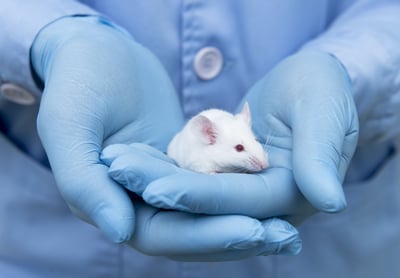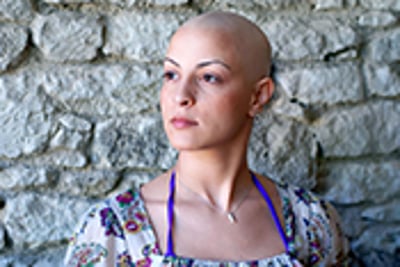Ovarian Cancer



Relevance: High
Most relevant for: People with Icelandic heritage
Article: The right not to know when not knowing is dangerous
Healthcare providers are bound by the guiding principle of doing no harm. But how does this concept apply to their patients who have not consented to genetic testing or who do not want to know their results? In that case, is providing test results more harmful or not? Anna Clausen explores these issues in the context of breast cancer gene testing in her Global Health Now article “The Right Not to Know: When Ignorance is Bliss but Deadly.” (4/20/18)
READ MORE ›


Relevance: Medium
Most relevant for: People who are considering or have had direct-to-consumer testing through 23andMe
Update: FDA approves at-home test kits for inherited cancer: how useful are they?
Genetic testing for health conditions (such as risk for cancer) typically requires a prescription from a doctor. Until recently, direct-to-consumer (DTC) genetic testing has focused on tests to learn your ancestry and find of unknown branches of family trees. A laboratory called 23andMe that provides direct-to-consumer genetic testing has been given FDA approval to report results for 3 mutations found in the BRCA1 and BRCA2 genes. The FDA statement provides details about this approval and warns people about the limitations of the 23andMe test. (03/19/18)
READ MORE ›


Relevance: Medium-Low
Most relevant for: People with advanced cancers
Study: Cancer “vaccine” injected directly into tumors works in mice
Immunotherapy is treatment that uses the immune system to fight cancer. Still in its infancy, it is a promising therapy that is changing how certain cancers are treated. A new study reports that tumors in lab mice were eliminated when they were injected with two immune system-enhancing agents. This new approach is called in situ (at the original site) vaccination because the injections are given directly into the tumors. It worked on several different types of mouse tumors, including lymphomas and breast tumors. This approach may be safer than conventional immunotherapy because it uses very low doses of the agents and it does not require tumors to have particular markers. (02/23/18)
READ MORE ›


Relevance: Medium-High
Most relevant for: People referred to a genetic counselor or those considering genetic testing
Study: Genetic counseling by phone or face-to-face
Results presented at the 2017 American Psychological Association’s annual meeting showed genetic counseling by telephone is as “safe and effective” in long-term psychological and social outcomes compared to traditional in-person counseling for women at risk for hereditary breast and ovarian cancer. This presentation is an update on research published in 2014. (11/29/17)
READ MORE ›


Relevance: Medium-High
Most relevant for: people with an inherited mutation linked to cancer risk
Article: Preimplantation genetic diagnosis and hereditary cancer
Andrew Joseph’s piece for STAT, “A baby with a disease gene or no baby at all: Genetic testing of embryos creates an ethical morass,” focuses on preimplantation genetic diagnosis (PGD) and the emerging ethical issue in the field of reproductive medicine: What to do when patients seeking to get pregnant select embryos with DNA that could lead to a disease or a disability. (11/8/17)
READ MORE ›


Relevance: Medium
Most relevant for: People who are considering or have had direct-to-consumer testing
Article: Mixed reviews of at-home genetic testing
National guidelines recommend that patients meet with a genetics expert before undergoing genetic testing for cancer risk. Genetic counseling can help patients decide whether genetic testing is right for them and order the most appropriate test. Once test results are available, genetics experts also help patients understand their results. Over the last decade, the popularity of direct-to-consumer (DTC) genetic testing, such as 23andMe has grown. Some genetic tests are marketed to consumers on television, in print advertisements, and on the Internet. These “at-home” genetic tests give people direct access to their genetic information without first involving a healthcare provider in the process. A recent report outlines the benefits and limitations of DTC genetic testing. (10/20/17)
READ MORE ›


Relevance: Medium-High
Most relevant for: Parents who have an inherited gene mutation
Article: Parents face challenges when deciding the best time to tell children that they may be at high risk for cancer
When certain types of cancers run in families, genetic testing can determine whether the cause is hereditary. Genetic testing can help family members understand their cancer risk and make medical decisions to stay healthy. A test result can provide significant insight, but it also creates challenges for parents, because gene mutations that cause hereditary cancers can be passed from mothers and fathers to sons and daughters. People with these mutations must make difficult decisions about when to tell their children that they too may have inherited the mutation. (8/22/2017)
READ MORE ›


Relevance: High
Most relevant for: Women with an inherited mutation in BRCA1 or BRCA2
Study: New cancer risk estimates for BRCA1/2 mutation carriers
Cancer risk estimates for BRCA1 and BRCA2 mutation carriers are important because they impact patient decision-making. Until now, almost all risk estimates for mutation carriers were based on results of retrospective studies that looked back on mutation carriers who had cancer. This new study is prospective—it followed almost 10,000 BRCA mutation carriers without cancer to see if or when they developed breast or ovarian cancer. The cancer risk estimates of this study may be more accurate because it followed mutation carriers who did not have cancer over time. (7/28/17)
READ MORE ›


Relevance: High
Most relevant for: People diagnosed with or concerned about their risk for cancer
Article: FDA busts myths of preventing and treating cancer by eating apricot kernels, herbs, and other ingredients
Maggie Fox (NBC News) writes about a new FDA report that warns of 14 "fraudulent” cancer products claiming to either cure or treat cancer (1). The companies that sell these products claim that many of them also prevent cancer, but are they safe or effective? (6/26/17)
READ MORE ›


Relevance: High
Most relevant for: Patient undergoing chemotherapy
Study: Does scalp cooling help prevent hair loss after chemotherapy?
Hair loss is one of the most recognized and distressing side effects of some chemotherapies. Two studies looked at the use of scalp cooling therapy to help reduce hair loss after chemotherapy for early-stage breast cancer. (5/15/17)
Update: Based on data from clinical trials, the FDA approved Dignicap scalp cooling device for treatment in patients diagnosed with solid tumors who are receiving chemotherapy.
READ MORE ›